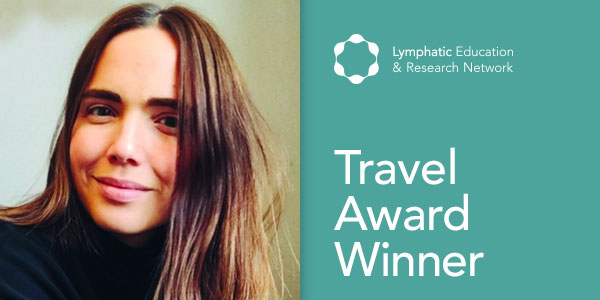Maike Frye, currently a Postdoc at the University of Uppsala, Sweden, under the supervision of Taija Mäkinen, received a travel award from LE&RN to attend the 2016 Gordon Research Conference in Lymphatics held in Ventura, CA. We asked Maike to share her thoughts on that experience with us and to tell us a bit about her research and future plans.
What did you get out of the Conference? Why did you feel it was important to attend?
The 2016 Gordon Research Conference in Lymphatics was the first Gordon Research Conference I attended. The atmosphere of this conference is unique. I experienced a week full of unpublished high quality data, deep scientific discussions and interesting poster sessions. I got to know a lot of the leading researchers in the lymphatic field personally; everyone was open to meet and discuss. I am relatively new to the field of lymphatic research and for me this conference was a very good opportunity to connect with other researchers and to broaden my lymphatic horizon.
What are your areas of interest in research?
During my PhD I mainly focused on the functional analysis of the regulation of vascular permeability in the blood vessel endothelium. I studied some of the main adhesion molecules present in the contact between two neighboring blood endothelial cells. I am happy that I can extend this junctional analysis to the lymphatic endothelium now. I believe the molecules, which are pivotal for the maintenance of adult lymphatic junctional integrity and function, will reveal new therapeutic targets for lymphatic diseases. On the other side, I am also studying lymphatic developmental processes in my current lab. With the support of the LE&RN Postdoctoral Fellowship Award 2014 in the last two years, I was able to identify a novel role of a transcriptional factor in very early stages of the lymphatic development.
What are your hopes and plans for your career and your research?
I am planning to finish my Postdoc in Taija Mäkinen’s lab. We have a supporting and creative environment not only in our group but also in the entire growing vascular research community here in Uppsala. After that I hope to become a junior group leader. I would like to continue to study molecules, which play an important role during lymphatic development and which also maintain a function in the established adult lymphatic vasculature. I believe connecting developmental and adult lymphatic studies is the key to understanding the bigger picture.
Why do you believe that, in general, lymphatic research is important? What might the field accomplish within the next few years?
Many people forget about the high number of patients, who suffer from lymphatic diseases. LE&RN has done a great job in making people more aware about the existence, the variety and potential therapies of lymphatic diseases. Along with this, I hope the lymphatic field will receive even more recognition by unraveling the function of established and new lymphatic players to develop novel therapeutic strategies for human lymphatic diseases.
